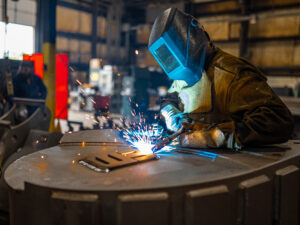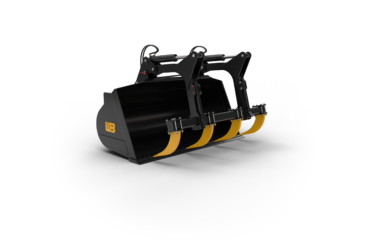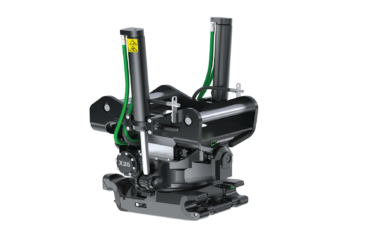 Selecting the right manufacturer for your attachments is important for ensuring customer-based solutions, safety, and cost effectiveness in your operations. Here are some signs that you might not be partnered with the right manufacturer.
Selecting the right manufacturer for your attachments is important for ensuring customer-based solutions, safety, and cost effectiveness in your operations. Here are some signs that you might not be partnered with the right manufacturer.
Inconsistent Quality:
If you notice that the attachments that you are receiving vary in quality, this is a major red flag. High-quality manufacturers maintain consistency across all products. Look for signs like frequent repairs, premature wear, fitment issues, or having to send items back immediately.
Poor Customer Service:
A reliable manufacturer should provide robust customer support. If you’re experiencing delays in getting responses, unhelpful service representatives, or difficulty obtaining spare parts and services, it’s time to reassess your partnership. Good communication is key to a successful relationship, especially between dealers and their manufacturers.
Limited Product Range:
Your manufacturer should offer a diverse range of attachments to meet difficult operational needs. If their catalog is limited, it might hinder your work flexibility. Consider a manufacturer whose offerings are aligned with both current and future needs.
Lack of Innovation:
Technological advancements can significantly boost operation and give more opportunities for dealers to provide value-based solutions to their customers. If your manufacturer is not keeping up with industry innovations – such as offering attachments with enhanced durability, technology, or new ways of going to market – they might not support your growth in the long run.
Negative Market Reputation:
Research reviews, testimonials, and industry rumors. If the manufacturer has a poor reputation or a trail of unsatisfied customers; take this as a warning sign. A company’s reputation often reflects its reliability and product quality.
Inconsistent Pricing:
Price should reflect what is quoted and be consistent no matter who is at the company giving the quote. If you are seeing inconsistencies or have to question invoices. It might be time to re-evaluate the partnership. A good manufacturer will have strong systems in place to give accurate quotes and pricing.
Consignment with No Terms:
Having product on the ground can be a luxury and allow customers the opportunity to walk by and see something they may otherwise not be able to take home that day. However, if a manufacturer is offering consignment or to put product on the ground without terms or structure in place; it could be a sign that they are importing more attachments than they have room for or the capacity to pay for warehousing and are utilizing your facility for free storage.
Expedited Delivery:
Manufacturers that offer feeds for expedited delivery for a fee. There are some manufacturers that will allow you to pay to come to the front of the line instead of having a dedicated area which is separate from other orders. This shows that they are willing to jump other people’s orders for yours. If you are a loyal customer waiting in line for their order, that can be a frustrating scenario that could cost you deals and longer lead times.
Manufacturers That Charge Hidden Costs:
Costs that are not considered up front during the quoting process can be costly and add frustration to the buying process. No one wants to go back to their customer after a quote and must relay the news that the price has gone up for some unforeseen reason. Examples of some of these costs could be late payment fees, shipping fees, freight charges, border fees, tariffs, and missing delivery dates. Any of these examples build added cost not captured in the original quote and order agreement. When competition is heavy and every dollar matters; it’s critical to get accuracy up front. Often manufacturers will over promise and under deliver on promises. If a manufacturer is not fulfilling their promises, it might be time to look for an alternative source.
Manufacturers that Lean Heavily on Stock Inventory:
Often manufacturers that are heavy on inventory are importers. They don’t really make what they sell and are therefore held captive to things like currency exchanges, tariff policies, taxes and more. Prices can fluctuate greatly and if they are out of something you will need to wait for extended lead times for the item to first be built then sent overseas. If the product fails, they will be at the mercy of their manufacturer in between you and your customers will pay the price.






